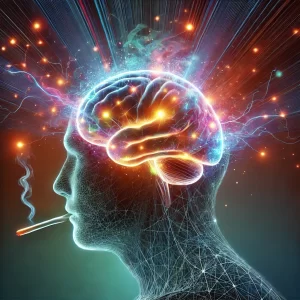The world has changed in ways unimaginable by thinkers and theorists from the past. With the pace of technological advancement, cultural evolution, and global interconnectivity, the contemporary landscape seems far removed from the world of the 18th and 19th centuries. Yet, despite this, many foundational theories and concepts from earlier centuries continue to shape modern society, economics, politics, and philosophy. The central question that arises is: Can ideas crafted centuries ago truly comprehend and address the complexities of today’s world?
Theories Crafted in the Past
Many of the most influential thinkers from before the 20th century left us with frameworks that still hold sway over current thought. These theories, born in times with vastly different technology, social structures, and knowledge, have withstood the test of time. Yet, some argue that without understanding the dynamics of today’s advanced world, how can we continue to rely on ideas that were shaped by vastly different circumstances?
Here are just a few examples of long-standing theories that still govern key aspects of modern society:
- Adam Smith’s “Invisible Hand” and Capitalism: Adam Smith, the Scottish economist and philosopher, laid the groundwork for modern capitalism with his concept of the “invisible hand” in The Wealth of Nations (1776). Smith argued that individuals acting in their own self-interest in a free-market economy would unintentionally promote the public good. However, this theory was based on the assumption of markets free from monopolies, government intervention, and information asymmetries. In today’s world, the rise of massive multinational corporations, government interventions, and the digital economy challenges whether Smith’s theory still applies without substantial adaptations.
- Karl Marx’s Theory of Class Struggle: Karl Marx, a 19th-century German philosopher, introduced the theory of class struggle and the critique of capitalism, which laid the foundation for Marxist thought and socialism. Marx argued that history was driven by the conflict between the ruling class (bourgeoisie) and the working class (proletariat). While his analysis of exploitation remains influential, the global nature of today’s economy, advanced technology, and the rise of a middle class in previously industrial nations have altered some of the dynamics Marx predicted. Still, his ideas on economic inequality and social justice fuel contemporary debates on capitalism and wealth distribution.
- Charles Darwin’s Theory of Evolution: Charles Darwin’s groundbreaking work On the Origin of Species (1859) introduced the theory of natural selection, which provided a scientific explanation for the development of life on Earth. This theory has not only revolutionized biology but also influenced social theories and even politics, leading to the rise of Social Darwinism. While modern science has refined and built upon Darwin’s ideas, the principles of evolution continue to underpin much of modern biology and even inform how we think about human behavior, psychology, and ethics.
- Sigmund Freud’s Psychoanalysis: Sigmund Freud, the father of psychoanalysis, offered profound insights into the human psyche with his theories on the unconscious mind, childhood development, and psychosexual stages. Although much of Freud’s work has been criticized or revised by modern psychology, his emphasis on the unconscious and early experiences continues to influence therapy, human behavior studies, and even popular culture. Freud’s impact on understanding personality and motivation remains relevant, even as new theories and methods have evolved.
Can These Theories Still Be Applied Today?
Critics argue that these classical theories were shaped by the particular social, economic, and technological contexts of their times. Adam Smith could not have foreseen global financial markets, digital currencies, or climate change; Marx did not predict the technological revolution or the formation of the globalized middle class; Darwin’s theories do not fully account for cultural or environmental influences on human development in the modern world.
However, proponents contend that these theories remain foundational because they address underlying principles of human behavior, societal structure, and natural law that are enduring. These theorists provided frameworks that helped us understand the complexities of human life and society, and they offer lenses through which to view the challenges of today. While we might need to adapt their ideas to modern issues, their core insights still provide invaluable perspectives.
The Modern Application of Ancient Theories
One example of the ongoing relevance of older theories in today’s world is how they shape our responses to modern issues. Consider the debate over income inequality. Marx’s theories of economic exploitation and class struggle are still referenced by economists and policymakers today, particularly when discussing the wealth gap between the global North and South or within industrialized countries. Similarly, Smith’s idea of the “invisible hand” is central to the neoliberal economic policies promoted in many Western nations today, advocating for market deregulation and competition.
Moreover, as we continue to face challenges such as climate change, rapid technological advancements, and complex geopolitical tensions, the need to reconsider and refine these theories becomes more pressing. Theories such as Marxism or Smith’s capitalism may need to be updated to reflect the interconnected global system we now inhabit, yet their central tenets about human nature, social organization, and economic structure continue to offer critical insights.
Think twice
While the world today is markedly different from that of the 18th and 19th centuries, the theories crafted by thinkers like Adam Smith, Karl Marx, Charles Darwin, and Sigmund Freud remain influential. Their ability to transcend time and space speaks to the universality of their insights into human behavior, social organization, and the natural world. However, as society continues to evolve at an unprecedented pace, there is a growing need to adapt these theories to address the challenges of the 21st century. The debate remains: Can old ideas guide us in navigating today’s complex and ever-changing world? While the future remains uncertain, the timeless relevance of these ideas is a testament to the enduring nature of human thought and inquiry.




















+ There are no comments
Add yours